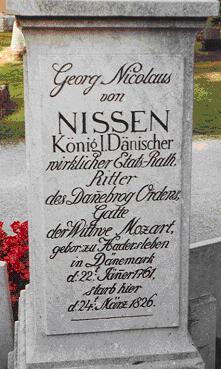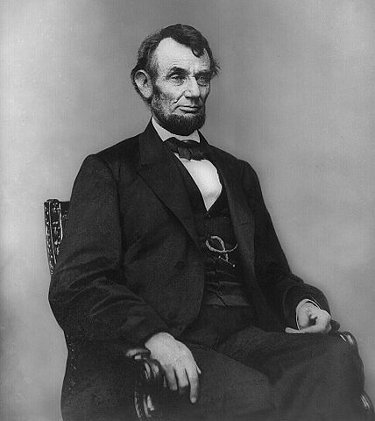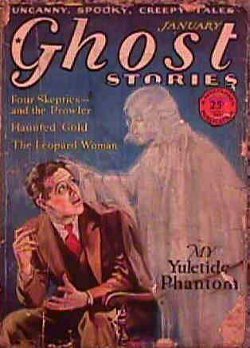
The tombstone of Constanze Mozart’s second husband calls him “the husband of Mozart’s widow.”

The tombstone of Constanze Mozart’s second husband calls him “the husband of Mozart’s widow.”

In May 1861, barely three weeks after the start of the Civil War, Mary Todd Lincoln received a letter from Helen Rauschnabel of Rochester, N.Y., relating “a remarkable dream I had last night about Mr. Lincoln which I think has a significant meaning.”
I dreamed it stormed & thunderd & lightned terribly, it seemed as tho the Heavens & Earth were coming together, but it soon ceased, still there seemed to be very dark clouds sailing thro the horison, I thought I stood pensively viewing the scene, when a man resembling Mr Lincoln appeard standing erect in the firmament with a book in his hand, he stood as near as I could calculate over the City of Washington, his head seemed reard above the lightnings flash and thunder bolt, the sun seemed to be just rising in the East, and its rays shed a soft mellow light around about him, beneath his feet rolled dark & heavy clouds which the sun light was fast dispeling, I saw him walk thro all the Southern part of the horison with a book in one hand, & a pen in the other.
“When he got to the western part of the firmament he made a halt & stood erect,” she remembered. “He was crowned with honors & coverd with Laurels, and looked very smiling.” She found herself singing a verse, which she remembered when she awoke and committed to paper: “A voice from the North has proclaimed the glad Morn / And Slavery is ended & Freedom is born / The fair Sunny South is restor’d one more / Secession is ended & Slavery is ore.”

Draw any triangle and divide each leg into three equal segments. Connect each vertex to one of the trisection points on the opposite leg, as shown, and the triangle formed in the center will have 1/7 the area of the original triangle.

A square inscribed in a semicircle has 2/5 the area of a square inscribed in a circle of the same radius.

Draw a square and connect each vertex to the midpoint of an opposite side, as shown. The square formed in the center will have 1/5 the area of the original square.
A “proof without words”:

Trisect each side of a triangle and join each vertex to the opposite trisection points. Then write a hexagram in the hexagon in the center. The area of the hexagram is 7/100 the area of the original triangle.
“People who count their chickens before they are hatched act very wisely because chickens run about so absurdly that it’s impossible to count them accurately.” — Oscar Wilde
A boat floats in a swimming pool. In the boat is a block of ice. If the block is dumped into the water and melts, does the water level rise or fall?

Why do ghosts wear clothes? If a ghost is the spirit of a living creature, how can it carry its inanimate garments into the afterlife?
“How do you account for the ghosts’ clothes — are they ghosts, too?” asked the Saturday Review in 1856. “What an idea, indeed! All the socks that never came home from the wash, all the boots and shoes which we left behind us worn out at watering-places, all the old hats which we gave to crossing-sweepers … What a notion of heaven — an illimitable old clothes-shop, peopled by bores, and not a little infested with knaves!”
In 1906 psychic researcher Andrew Lang argued that, far from confusing the notion of an afterlife, ghosts’ clothing might even help to corroborate its existence. “A pretty instance occurs, I think, in a biography of Warren Hastings. The anecdote, as I remember it, avers that at a meeting of the Council of the East India Company in Calcutta one of the members (I think several shared the experience) saw his own father, wearing a hat of a peculiar shape, hitherto strange to the observers. In due time came a ship from London bearing news of the father’s death, and a large and well-selected assortment of the new hat fashionable in England. It was the hat worn by the paternal appearance! If the circumstances are recorded in the minutes of the proceedings of the Council, which I have not consulted, then the hat of that spook becomes important as evidence.”
Even if we grant that a dead person can convey his most personal belongings into the afterlife, how are we to account for phantom ships, coaches, and railway trains? In his 1879 book The Spirit World, American spiritualist Eugene Crowell decided that, rather than being the spirits of “dead” earthly conveyances, these are constructed in the afterlife by the ghosts of mariners and railwaymen who want to ply their trades again. Spectral ships “glide over the waves without sinking,” Crowell explained, “and earthly winds propel them at rates of speed which our ships cannot attain.” If that’s true, then perhaps some ghostly tailor is simply manufacturing clothes for the naked spirits of the newly dead. Decent of him.
When eight certain cards are removed from a standard poker deck, it becomes impossible to deal a straight flush. What are the cards? (Assume the deck contains no jokers.)

In 1936, as Franklin Roosevelt campaigned for re-election against Republican Alf Landon, a group from Wall Street’s financial district sponsored a competition to find the best anagram for FRANKLIN DELANO ROOSEVELT. The winner was VOTE FOR LANDON ERE ALL SINK.
During the 1980 campaign, Jimmy Carter was accused of reversing his position on several issues to maintain his popularity. Edward Scher of New York University coined the palindrome TO LAST, CARTER RETRACTS A LOT.
Carter lost that election to Ronald Reagan, who inspired Howard Bergerson to compose a “press conference” in 1982 using only the letters in RONALD WILSON REAGAN. Here the Gipper describes his foreign policy:
We are sworn nonaggressors; we need law and order, we disallow war as lawless and senseless, and in a larger sense we also regard war as, now and again, needed. A needed war is no dead end or swan song, nor need we ride in war as no-good sinners on genderless geldings! We need androgens and derring-do! We need Old Glories, and seasoned soldiers garrisoned worldwide, generals in golden regalia, and raised dander! We need all-seeing, world-girdling radar, seagoing sonar and liaison ensigns, newer DEW lines and earlier NORAD warnings, larger arsenals and deadlier arrows in silos, R-and-D on lasers, and goodlier anger! We need no ring-a-ding dissensions and wild-goose rallies, nor do we need addled ding-a-ling diagnoses on wielding dread winged swords and daggers — or on wielding God’s own grenades! Ordained grenadiers alone assess, and ordained godlings alone will wield Gold’s sidereal grenades riding on Odin’s arrows. Godless Leningrad warlords and roodless, religionless Red warriors sold on Red-engendered Warsaw agreeings are as sidling sidewinders in loose sand! In nine innings (I disdain gridiron analogies) we will win — no one is dawdling! We are leaning on oars! We and God will engage all Red raiders, and, God willing, we will win odds-on! No one dragoons or goads God!
Reagan’s name can also be rearranged to spell INSANE ANGLO WARLORD.
Grandpapa fell down a drain;
Couldn’t scramble out again.
Now he’s floating down the sewer
There’s one grandpapa the fewer.
— Harry Graham